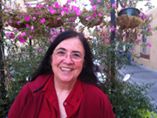Coach/Speaker
As an author, writing coach, and speaker, I have discovered that writing groups are one of the best ways to learn the craft of fiction.
Writing groups give solitary authors a chance to come out of their creative caves and get some feedback on their work. If you’d like me to speak to your writing group or your book group, send me an email using the contact form on this site.
My Experience With Writing Groups
For years I’ve had the pleasure of working with other writers. Mostly, this has been in writing groups. When I lived in Evanston, I participated in a largish group, The Glencoe Writers. We hired teachers from the Art Institute, Washington University, Purdue, and the University of Illinois to read and critique two manuscripts per week.
For a dozen years I was also a member of Fred Shafer’s novel and short story workshops. Fred, formerly an editor for the literary magazine TriQuarterly, met weekly with the short story writers and monthly with the novelists. Fred taught for an hour or so, and the other two hours were devoted to close study of student manuscripts.
One of the unique aspects of these workshops was the opportunity to learn from living writers. Every year Fred chose a writer for us to study. We then read all of that writer’s works, from their very first stories to their most recent novels, and that gave me an appreciation for the notion that every aspiring writer takes a while to learn what they’re doing. During the year, Fred extracted craft lessons from that writer’s books. He compared our writing to the work of the famous writer. The comparisons were not always favorable. In fact, almost never. But, gradually, we learned.
Establishing A new Writing Group
Several years ago my husband took a new job, and I moved to Phoenix. The Valley of the Sun has its own, vibrant writing communities, but we Phoenicians live miles apart. I learned that Meetup.com is a terrific place to quickly find writers, if you’re of a mind to do so.
Because I liked the encouragement and focus a group provided, I formed one. Here’s an article about a group I began.
Online Writing Groups
I’ve been in other groups over the years, most recently as a member of a Stanford program. But joining a group doesn’t always have to involve in-person critique sessions or Zoom meetings. You can find them in online groups that never meet in person, but instead exchange comments on manuscripts over the internet. One of my favorite new discoveries is www.BetaBooks.co. Not surprisingly, the members of a group are the book’s “beta readers.”
Whether you participate in a local writing group or throw your hat in the ring some other way, the important thing is for you to find early–beta–readers. They’ll tell you what’s working and where they stumbled. They’ll point out continuity problems and grammar errors.
My point is that without feedback, a writer simply cannot self-correct. By reading drafts of works-in-progress, we learn.
One of the things I absolutely love about writing is that there is no end to the learning curve. I am an inveterate student and always eager to pick up a suggestion that might make it easier to write or revise my stories. And, my interest these days isn’t just about the writing itself. I’m more and more focused on the marketing aspects of a writing career. We can write the greatest book in the world, but if no one reads it, we’ve wasted years of our life.
Lately, I’ve realized that I’m in a good position to share some of the knowledge I’ve accumulated over many years. I could and have taught as an adjunct professor of Creative Writing, but I’ve always been astonished at the pathetically low pay adjuncts receive. Rather than go that route, I’m sharing the information on this blog. Ordinarily, I would have shared the information with a group of ten or twelve aspiring writers, but this allows me a much greater latitude.
I hope you’ll enjoy my posts and that you’ll leave comments or questions about topics you’d like me to cover. My primary goal is to help you write the best book you can write.
Marylee MacDonald
